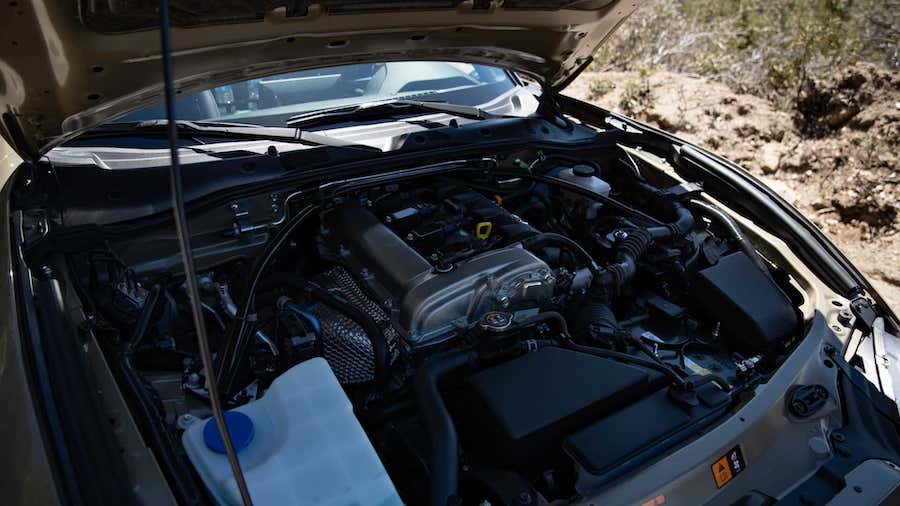Mazda Miata RF Sales Paused in Japan Due to Engine Software Issue

Toyota isn't the only Japanese automaker to put the brakes on some JDM deliveries following irregularities discovered during the certification process. Mazda is doing the same for the MX-5 Miata in the RF flavor at home in Japan. The culprit is the engine control software, which was different during testing than the one fitted to production cars sold to customers.
Mazda admits it used a different engine control software that had a partially deactivated ignition timing adjust function during the certification process. From June 2018, it produced 10,930 cars with this problem, most of which were delivered to customers. Since sales started in July 2018, the hardtop convertible with this issue was shipped to 10,760 buyers from Japan.
Although the Miata soft top is sold in the Land of the Rising Sun with the smaller 1.5-liter engine as well, the RF is exclusively a 2.0-liter affair. The impacted cars are from the 5BA-NDERC and 5BA-NDERE model types, with chassis numbers from 300001 and 100001, respectively. Mazda says it halted shipments to buyers on May 30 and apologizes for the delays that future owners are now facing.
Mazda is now busy rewriting the engine control software used in testing so that it matches the one found on the cars delivered to customers. The Mazda2 supermini with the 1.5-liter mill has an identical problem that has affected 42,240 cars of which 41,361 have been sold since June 2021. The Zoom-Zoom company assures owners the vehicles are perfectly safe.
There's a different problem with the certification tests of two other models. The Mazda6/Atenza and previous-generation Mazda3/Axela were evaluated in a frontal collision by using an "external device." The hardware prompted a timed activation of the airbag rather than allowing the car's onboard sensor to trigger the airbag's deployment.
Mazda is no longer making these two cars with the irregular hardware and says those that have been built are entirely safe to drive.
These irregularities were discovered following a request made at the end of January by the Ministry of Land, Infrastructure, Transport and Tourism. It follows last year's scandal at Toyota/Daihatsu about crash tests that were not up to standards.
Related News


